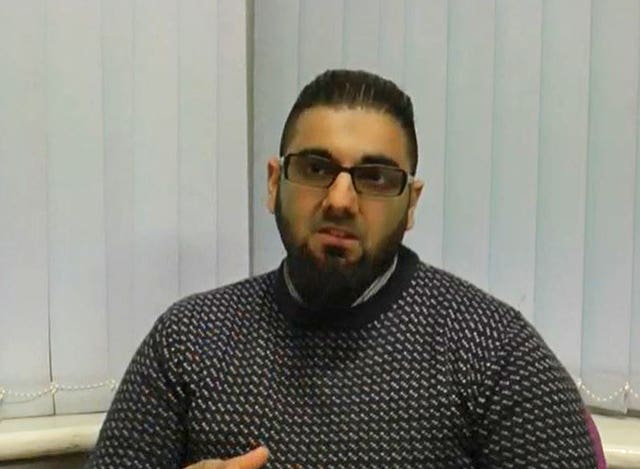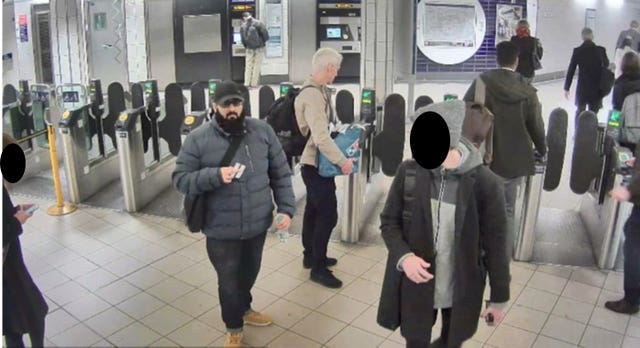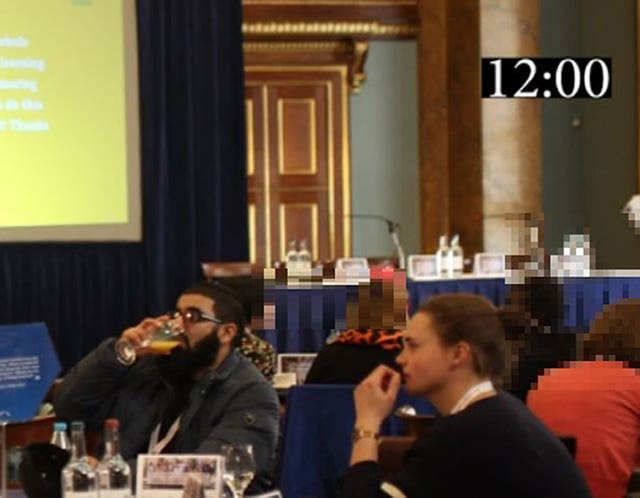No record of key Fishmongers’ Hall decision over Stafford terrorist, inquest told
No record exists of any “positive” decision to allow convicted Stafford terrorist Usman Khan to attend Fishmongers’ Hall where he launched a deadly attack, an inquest has heard.

Khan, 28, had been released under strict licence conditions 11 months before he travelled to London to attend a Learning Together event on November 29 2019.
He fatally stabbed Cambridge graduates Saskia Jones, 23, and Jack Merritt, 25, in Fishmongers’ Hall before he was shot dead on London Bridge.
Nigel Byford, who chaired the public safety panel, said there was a discussion when the plan was first mooted in August 2019.
But he could not recall the detail of what was said and it was not recorded in the minutes of the multi-agency public protection arrangements (Mappa) meeting.

Mr Byford, National Probation Service head of public protection for West Midlands, told jurors: “I certainly recall us having a discussion around whether there were any objections anybody wanted to raise.
“That is a clear memory but I cannot recall there is a significant amount of additional discussion that took place.”
Jonathan Hough QC, counsel for the coroner, asked if the discussion took 10 seconds or 10 minutes.
Mr Byford replied: “If it had been a long discussion I would have expected it to be minuted. Even the bit I referred to should have been minuted.”
An earlier request for Khan to attend a Learning Together event was rejected as coming too soon after his release from prison, but he was escorted to a subsequent event at Whitemoor prison, jurors heard.
More:
A request to take a dumper truck driving course was turned down by Mappa after recent events involving the use of vehicles as weapons were raised, the court was told.
Mr Hough asked if there had been any discussion about the venue for the Fishmongers’ Hall event, who would be there, and any security arrangements.
Mr Byford said: “We knew it was in London. I cannot recall if the location was given at this meeting but it was clear this event was being held in London, yes.”
Mr Hough went on: “Wasn’t it different in this respect – this highly dangerous man was being sent under his own steam to the capital city without any form of escort in place, unlike the previous event?”
Mr Byford said: “Yes, and I think obviously this resulted in hugely tragic consequences.”
He added that there had been no negative incidents recorded before, and the event was seen as the “next step” in his engagement with Learning Together.
Mr Hough asked: “Is it a fair in summary as far as you can recall, the visit to Fishmongers’ Hall was raised in the August meeting, that nobody objected but you cannot recall a positive clear decision being made to approve it?”
Mr Byford replied: “I think the difficulty I have is it’s not recorded in the minutes.
“My view is there would have been an agreement to that visit. That is what I believe would have happened.”

By the autumn of 2019, risk factors such as social isolation and inability to find a job were present in Khan’s case, the court heard.
Asked how he regarded Khan, Mr Byford said: “If I put Khan alongside all the other people we managed from the Tact (terrorism) panel, there is a very significant difference – he is engaging with a programme that began in prison and he has continued to engage with that throughout.
“We have not had that with any other terrorist offenders.
“So involvement with Learning Together is seen by the panel as very much a protective factor, something to be supported.”
Henry Pitchers QC, for the family of Ms Jones, suggested Mappa was “only looking at the potential benefits” of the Learning Together event, and not the risks.
Mr Byford said the programme was seen as “the direction of travel” and something to be “supported”.
He added: “If there had been any indication from anywhere there were particular concerns around him then obviously that decision probably would not have been taken.”
Mr Pitchers said: “I suggest Learning Together was regarded as a good thing for Khan, so him attending an event was regarded as a good thing.”
Asked if any discussion should have included what precautions were needed, the witness said: “If there was a need for precautionary measures, he would not have gone.”

Mr Byford chaired all but one of Khan’s 12 Mappa – meetings, jurors were told.
Khan was referred to Mappa 10 months before his release from prison, having been assessed as a “very high risk of serious harm” to the general public.
Before his release, Mappa was informed of intelligence that Khan was preparing to “return to his old ways”, the court heard.
Mr Byford said he had been unaware of any live investigation into Khan by MI5 or counter terrorism police.
Khan, who was originally from Stoke, was living at flats on Wolverhampton Road, Stafford, before the attack. He was released from prison on licence in December 2018, halfway through a 16-year prison sentence, after he was convicted of terror offences in February 2012.
The inquest at the Guildhall in London into the deaths of Mr Merritt and Ms Jones continues.





